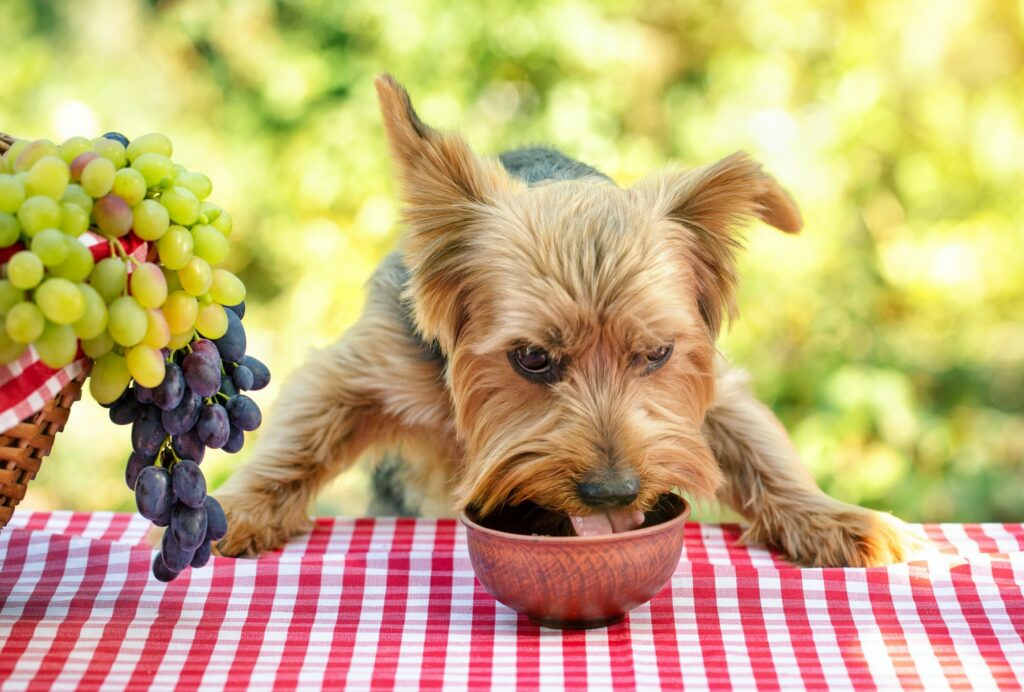Dogs are like members of the family, and we want to make sure that they are always healthy and safe. That’s why it’s important to know which food your dog should avoid. Some foods can be dangerous for dogs and can cause them to become very sick. This blog post will discuss the types of food your dog shouldn’t eat and why. We’ll also provide some tips on what you should do if your dog consumes something that isn’t safe for them!
Taking Care of Your Pup’s Health
As a dog owner, you have taken on the responsibility of keeping your furry friend healthy and safe. Part of that includes knowing which foods can be harmful to them.
This means, along with feeding your dog a healthy and balanced diet, you ensure they aren’t eating the wrong things. Sometimes it’s easy to think that a food that is healthy for us humans, like an avocado, would be just fine for a dog, but that’s not the case. There are a lot of “human” foods that are toxic to dogs, and it’s up to you to ensure your pet doesn’t consume them.
Food Your Dog Shouldn’t Eat
Take a look at this list of food your dog shouldn’t eat:

Alcohol
Alcoholic beverages and food containing alcohol can cause vomiting, diarrhea, poor coordination, cerebral nervous system depression, breathing difficulties, tremors, abnormal blood acidity, coma, and even death. Because of this, you should never give your dog alcohol. If you suspect that your pet has ingested alcohol, it is important to contact your veterinarian or the ASPCA Animal Poison Control Center as soon as possible.
Avocados
Avocados contain a substance called persin, which is toxic to dogs. Persin can cause vomiting and diarrhea in dogs. It can also lead to more severe problems like difficulty breathing, fluid accumulation around the heart, and even death. If you think your dog has eaten an avocado, it is important to contact your veterinarian right away.
Chocolate
The next food your dog shouldn’t eat is one that many people already know about, chocolate! Chocolate contains a substance called theobromine, which is toxic to dogs. Theobromine can cause vomiting, diarrhea, tremors, seizures, and even death.
Citrus Fruits
Citrus fruits, like lemons and limes, contain a substance called citric acid, which can be harmful to dogs. Citric acid can cause vomiting and diarrhea. It can also lead to more serious problems like difficulty breathing and kidney failure. If you think your dog has eaten a citrus fruit, it is important to contact your veterinarian right away.
Onions and Garlic
Onions and garlic contain a substance called thiosulphate, which is toxic to dogs. Thiosulphate can cause vomiting, diarrhea, and difficulty breathing. It can also lead to more serious problems like anemia and kidney failure.
Coconut and Coconut Oil
Another food your dog shouldn’t eat is coconut. Coconut and coconut oil can cause vomiting, diarrhea, and difficulty breathing. They can also lead to serious problems such as anemia and kidney failure.

Grapes and Raisins
Grapes and raisins contain a substance called oxalate, which is toxic to dogs. Oxalate can cause vomiting, diarrhea, and difficulty breathing. It can also lead to more serious problems like kidney failure. If you think your dog has eaten grapes or raisins, it is important to contact your veterinarian right away.
Milk and Other Dairy Products
Because pets do not possess significant amounts of lactase (the enzyme that breaks down lactose in milk), milk and other dairy-based products cause diarrhea or other digestive upset.
Caffeine
Caffeine can be harmful to dogs. It can cause vomiting, diarrhea, tremors, seizures, and even death. If you think your dog has ingested caffeine, it is important to contact your veterinarian or the ASPCA Animal Poison Control Center as soon as possible.
Yeast Dough
The next food that your dog shouldn’t eat that we want to discuss is yeast dough. Yeast dough can rise and cause gas to accumulate in your pet’s digestive system. This can be painful and can cause the stomach to bloat and potentially twist, becoming a life-threatening emergency. The yeast produces ethanol as a by-product, and a dog ingesting raw bread dough can become drunk.
Salt
Ingesting large amounts of salt can cause excessive thirst and urination in pets. Sometimes it can even cause sodium ion posion if the quantity is large enough. Signs that your pet may have eaten too many salty foods include vomiting, diarrhea, depression, tremors, elevated body temperature, seizures, and even death. Because of this, we encourage you to avoid feeding them salt-heavy snacks like potato chips, pretzels, and salted popcorn.
Macadamia Nuts
Another food your dog shouldn’t eat is macadamia nuts. Macadamia nuts contain large amounts of fat and can cause vomiting, diarrhea, tremors, and seizures. If you think your dog has eaten macadamia nuts, it is important to contact your veterinarian as soon as possible.
Sugary Foods and Drinks
Sugary foods and drinks can cause weight gain and tooth decay in dogs. They can also lead to more severe problems like diabetes and liver disease. So, avoiding feeding your dog sugary food and drinks is important.
What to Do if Food Your Dog Shouldn’t Eat is Consumed
Now that you know the different types of food your dog shouldn’t eat, you might be wondering what you should do if your animal consumes food that they shouldn’t. The first thing you should do is contact your veterinarian or the ASPCA Animal Poison Control Center at (888) 426-4435. They will be able to help you determine if your pet needs to be seen by a veterinarian and, if so, how soon your dog needs to come in.
If your dog has consumed any of these foods, please reach out for help immediately!
